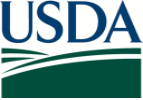Become a Farm Commons member to access this content and get all the benefits including free workshops and Q&A opportunities at any time! Join now with a Legal Professional Membership, Producer Membership or Membresía de Productores.
Already a member? log in
Not ready to jump in the membership pool? We get it, we're risk adverse too. Producers get a 14-day free trial membership! Cancel anytime during the free trial and your credit card won't be charged. Click the producer link above to get started. Our Institutional and Legal Professional members get special benefits not possible through a free trial, but reach out! We're happy to pass along a preview of specific resources and to explain member benefits in more detail. Reach out at the Contact Us page.

